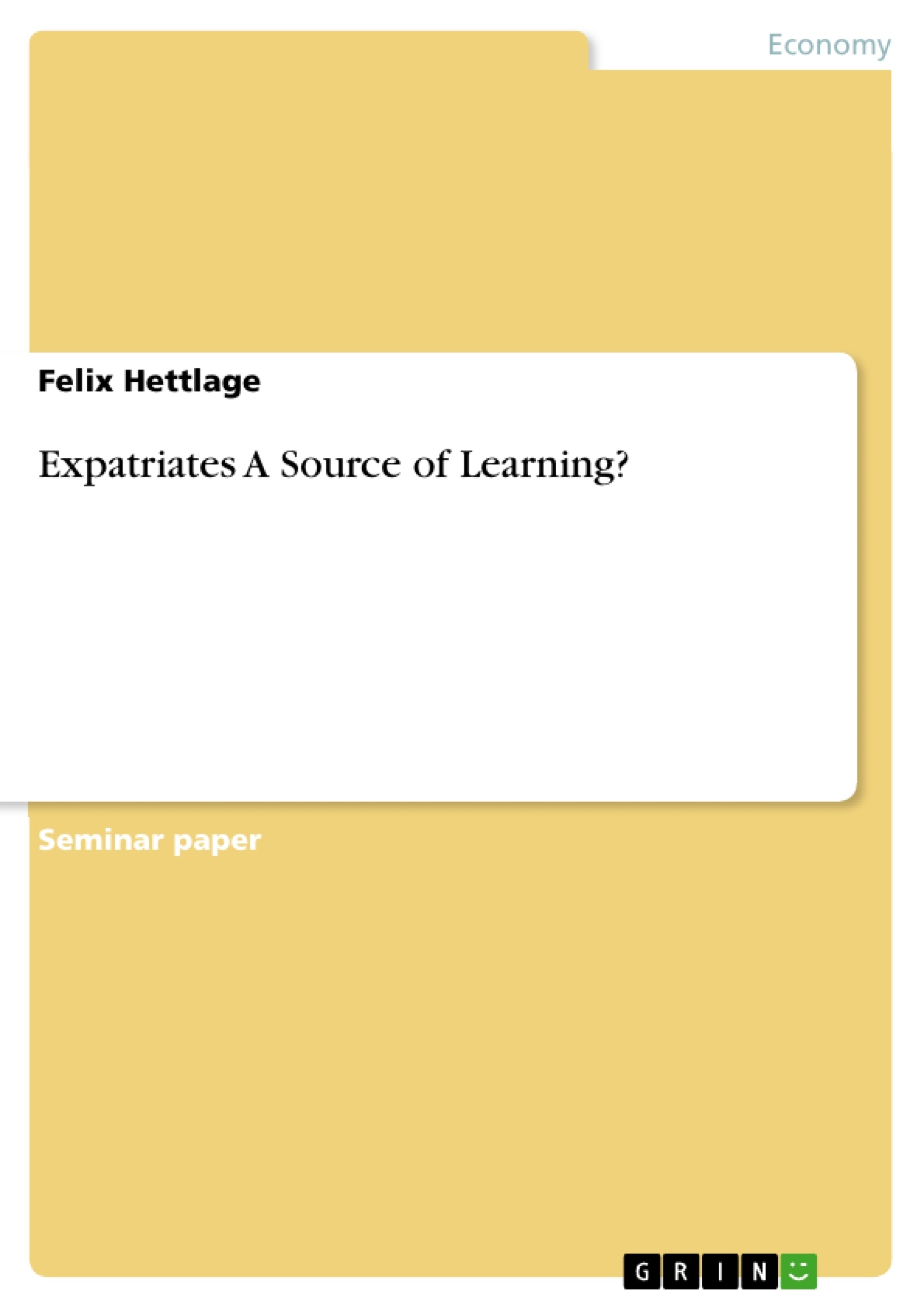It often seems as if the world is shrinking. Satellite, internet and cable technologies make it easier to communicate with friends, colleagues, and strangers in other countries on a realtime basis. Increasingly open borders give access to more countries, and citizens of previously ‘closed’ countries in turn to have access to the rest of the world. Due to these innovations it became possible to learn more about cultural differences as well as similarities. This new situation is especially valuable for companies that operate on an international or global scale. These companies can penetrate new markets to enhance profits but on the other hand these companies face also a complex and rapidly changing global environment. Companies have to deal with global and local competitors plus with multiple cultural settings that might be unfamiliar and difficult to comprehend. To survive in this global environment, companies have to be able to understand and to deal with this complexity. According to Antal (2000) a company has three keys to manage this challenge: a powerful strategic vision, a responsive structure, and internationally skilled people. The author further argues that people create and implement powerful strategic visions and responsive structure and hence the ability to develop employees and to utilize what employees have learned is the core competence organisations require to become and to remain competitive today.
This argument suggests that organisational learning and International Strategic Human Resource Management are interconnected. The knowledge and learning of employees build the foundation for organisational knowledge, and thus organisations are only able to learn when the individual knowledge is transferred to the organisation. Recognizing the importance of internationally skilled people for the organisation is especially important for international operating companies because learning about cultural differences and similarities may determine future success in unfamiliar markets.[...] The implication than for international organisation is that it should absorb as much knowledge from returning expatriates as possible in order to increase competitive competence. But since not all acquired knowledge of expatriates is useful and transformable into organisational knowledge the following core question of this paper arises: How valuable are expatriates to organisational learning? [...]
Inhaltsverzeichnis (Table of Contents)
- Introduction:
- Organisational learning
- Why expatriates?
- Expatriates' knowledge
- Discussion
- Conclusion
Zielsetzung und Themenschwerpunkte (Objectives and Key Themes)
This paper aims to explore the value of expatriates to organisational learning, specifically focusing on how knowledge gained by expatriates during international assignments can contribute to the organisation's overall knowledge base and competitive advantage.
- Organisational learning processes and types
- The role of expatriates in international business
- The nature of expatriate knowledge and its transferability
- Expatriate contributions to organisational learning
- Factors that influence expatriate success and failure
Zusammenfassung der Kapitel (Chapter Summaries)
- Introduction: This chapter introduces the concept of organisational learning in a global context, emphasizing the importance of internationally skilled employees for companies operating in a complex and dynamic global market. The chapter highlights the significance of expatriates as a resource for gaining knowledge about cultural differences and similarities, which is crucial for successful international operations.
- Organisational learning: This chapter delves into different theories of organisational learning, including single-loop and double-loop learning, as well as Miller's integrative framework, which distinguishes between lower and higher levels of learning and between individual and organisational learning. The chapter also discusses how internationalisation can be a source of organisational learning.
- Why expatriates?: This chapter focuses on the reasons why organisations utilise expatriates, highlighting the international transfer cycle that involves recruitment, selection, assignment abroad, and repatriation. The chapter provides insights into the prevalence of expatriate assignments in today's global business landscape.
Schlüsselwörter (Keywords)
The primary keywords and focus topics of this text include organisational learning, expatriate knowledge, international business, cultural differences, competitive advantage, and knowledge transfer.
Frequently Asked Questions
How do expatriates contribute to organizational learning?
Expatriates gain unique knowledge about cultural differences, local markets, and international practices, which can enhance an organization's global competitive advantage if transferred correctly.
What is the difference between single-loop and double-loop learning?
Single-loop learning focuses on fixing errors within existing rules, while double-loop learning involves questioning the underlying norms and objectives of the organization itself.
Why is knowledge transfer from returning expatriates difficult?
Not all acquired knowledge is transformable into organizational knowledge, and companies often lack responsive structures to absorb and utilize the individual experiences of repatriates.
What are internationally skilled people essential for companies?
They create and implement powerful strategic visions in complex global environments, helping organizations deal with multiple cultural settings and global competitors.
What is the core competence required for global competitiveness today?
The ability to develop employees and effectively utilize what they have learned during international assignments is the core competence for modern organizations.
- Citar trabajo
- Felix Hettlage (Autor), 2002, Expatriates A Source of Learning?, Múnich, GRIN Verlag, https://www.grin.com/document/10976



